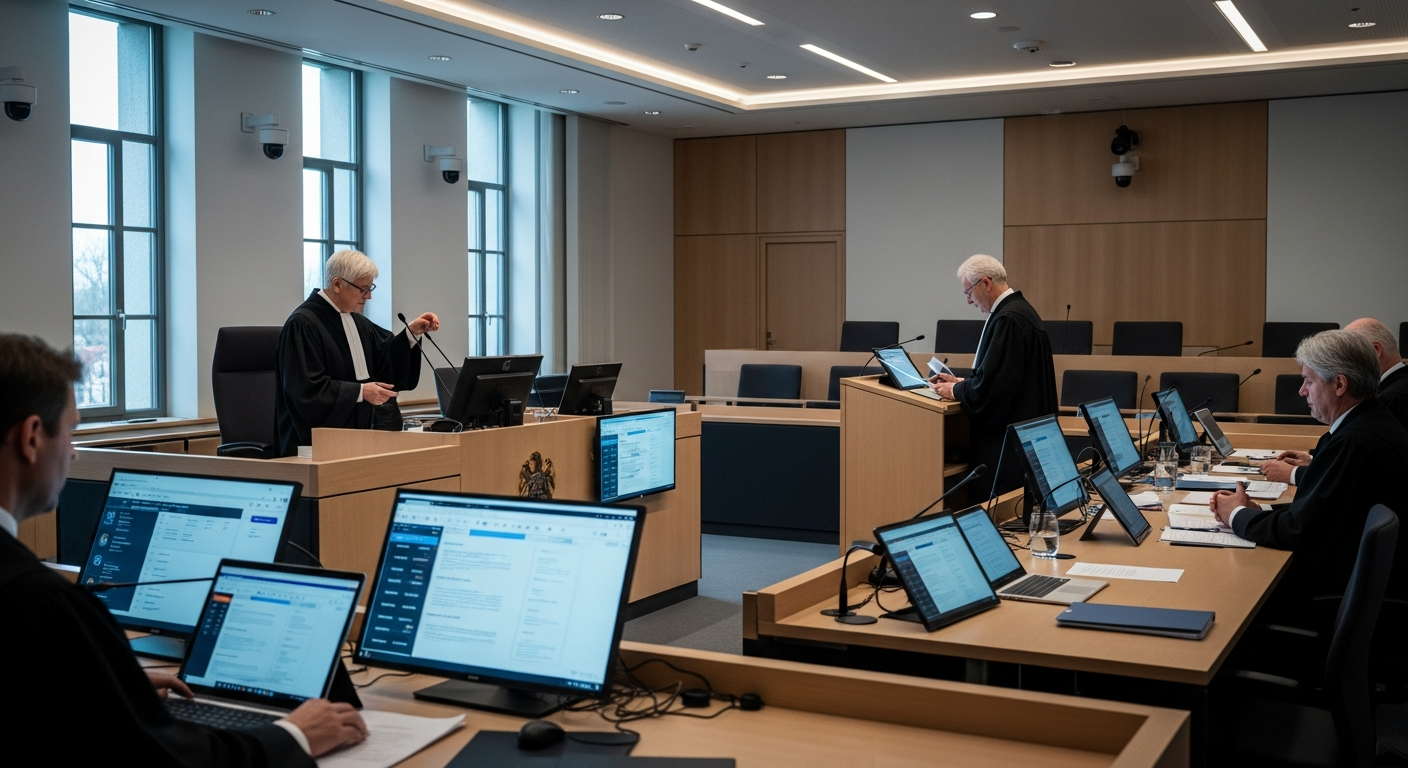Title: Judicial Review in the Digital Age: Adapting Ancient Principles
Introduction: In an era of rapid technological advancement, the centuries-old principle of judicial review faces unprecedented challenges. As courts grapple with cases involving artificial intelligence, blockchain, and digital privacy, the question arises: How can judicial review evolve to address the complexities of our digital world while preserving its fundamental role in upholding the rule of law?

Since its inception, judicial review has adapted to societal changes, from the Industrial Revolution to the Civil Rights Movement. However, the digital revolution presents unique challenges that test the limits of traditional legal frameworks and judicial interpretation.
The Digital Landscape: New Frontiers for Judicial Review
The rapid pace of technological innovation has created a complex legal landscape that often outpaces legislative action. Courts are increasingly called upon to apply constitutional principles to scenarios that the framers could never have imagined. From data privacy concerns to the regulation of autonomous systems, judges must navigate uncharted territory.
One of the most pressing issues is the application of Fourth Amendment protections against unreasonable searches and seizures in the digital realm. Courts have grappled with questions such as whether law enforcement needs a warrant to access cell phone location data or to search a suspect’s cloud storage. These cases require judges to balance individual privacy rights with the needs of law enforcement in an age where vast amounts of personal information are stored electronically.
Artificial Intelligence and Algorithmic Decision-Making
The rise of artificial intelligence and machine learning algorithms in government decision-making processes presents a novel challenge for judicial review. When automated systems are used to determine everything from benefits eligibility to criminal sentencing, how can courts effectively scrutinize these decisions?
Judges must now consider questions of algorithmic bias, transparency, and accountability. The opaque nature of many AI systems, often protected as trade secrets, complicates the judicial review process. Courts are tasked with ensuring that these systems do not perpetuate discrimination or violate due process rights, even when the underlying decision-making process is not easily understandable to humans.
Blockchain and Decentralized Governance
The emergence of blockchain technology and decentralized autonomous organizations (DAOs) raises fundamental questions about the nature of governance and the role of judicial review. These systems operate on distributed networks, often across international borders, challenging traditional notions of jurisdiction and sovereignty.
Courts must grapple with how to apply existing legal frameworks to these decentralized structures. For instance, how can judicial review be exercised over decisions made by smart contracts or DAOs that operate without a central authority? These questions push the boundaries of constitutional interpretation and require innovative legal thinking.
Adapting Judicial Review for the Digital Age
As technology continues to reshape society, the principle of judicial review must evolve to meet new challenges while preserving its core function. Several approaches are being explored to adapt judicial review for the digital age:
-
Specialized courts: Some jurisdictions are considering the establishment of specialized technology courts staffed by judges with technical expertise to handle complex digital cases.
-
Enhanced judicial education: Ongoing training programs for judges on emerging technologies and their legal implications are becoming increasingly important.
-
Interdisciplinary collaboration: Courts are increasingly relying on expert testimony and amicus briefs from technologists, ethicists, and other specialists to inform their decisions on complex digital issues.
-
Flexible interpretation: Judges are adopting more flexible approaches to constitutional interpretation, focusing on the underlying principles and values rather than strict textual analysis when applying the law to novel technological scenarios.
-
International cooperation: Given the global nature of many digital issues, courts are exploring ways to collaborate across jurisdictions to develop consistent approaches to judicial review in the digital realm.
The Future of Judicial Review in a Digital World
As we look to the future, it is clear that judicial review will continue to play a crucial role in safeguarding constitutional rights and maintaining the balance of power in government. However, its effectiveness will depend on the ability of courts to adapt to the rapidly changing technological landscape.
The challenges posed by the digital age offer an opportunity to reinvigorate and reimagine judicial review for the 21st century. By embracing interdisciplinary approaches, fostering technological literacy within the judiciary, and remaining flexible in the face of unprecedented legal questions, courts can ensure that the principle of judicial review remains a vital safeguard of democracy in the digital era.
As technology continues to advance, the importance of a robust and adaptable system of judicial review cannot be overstated. It will be essential in protecting individual rights, ensuring government accountability, and navigating the complex legal terrain of our increasingly digital world.






